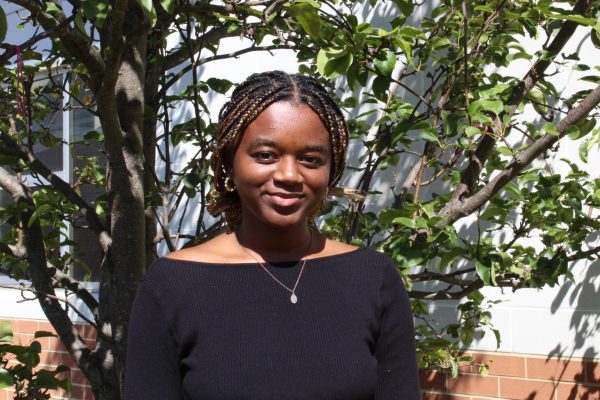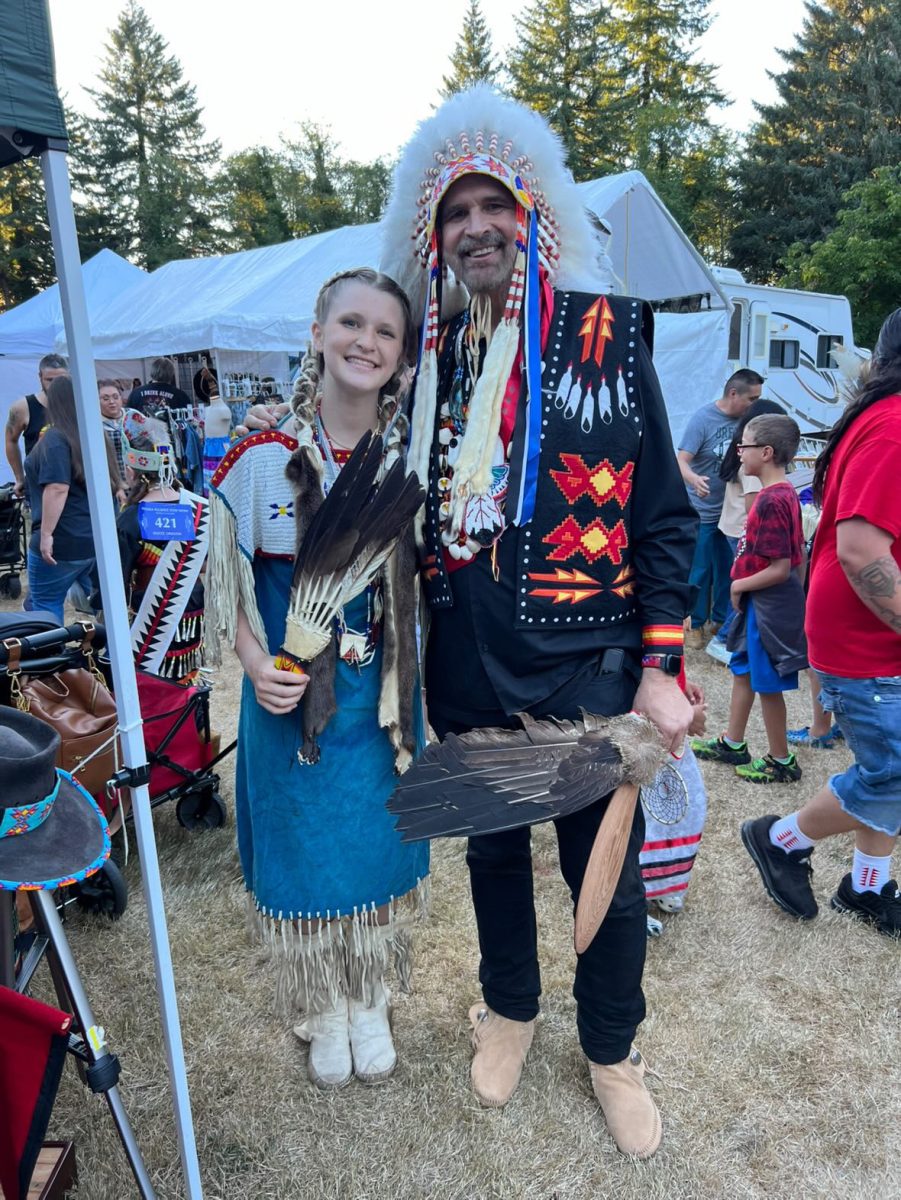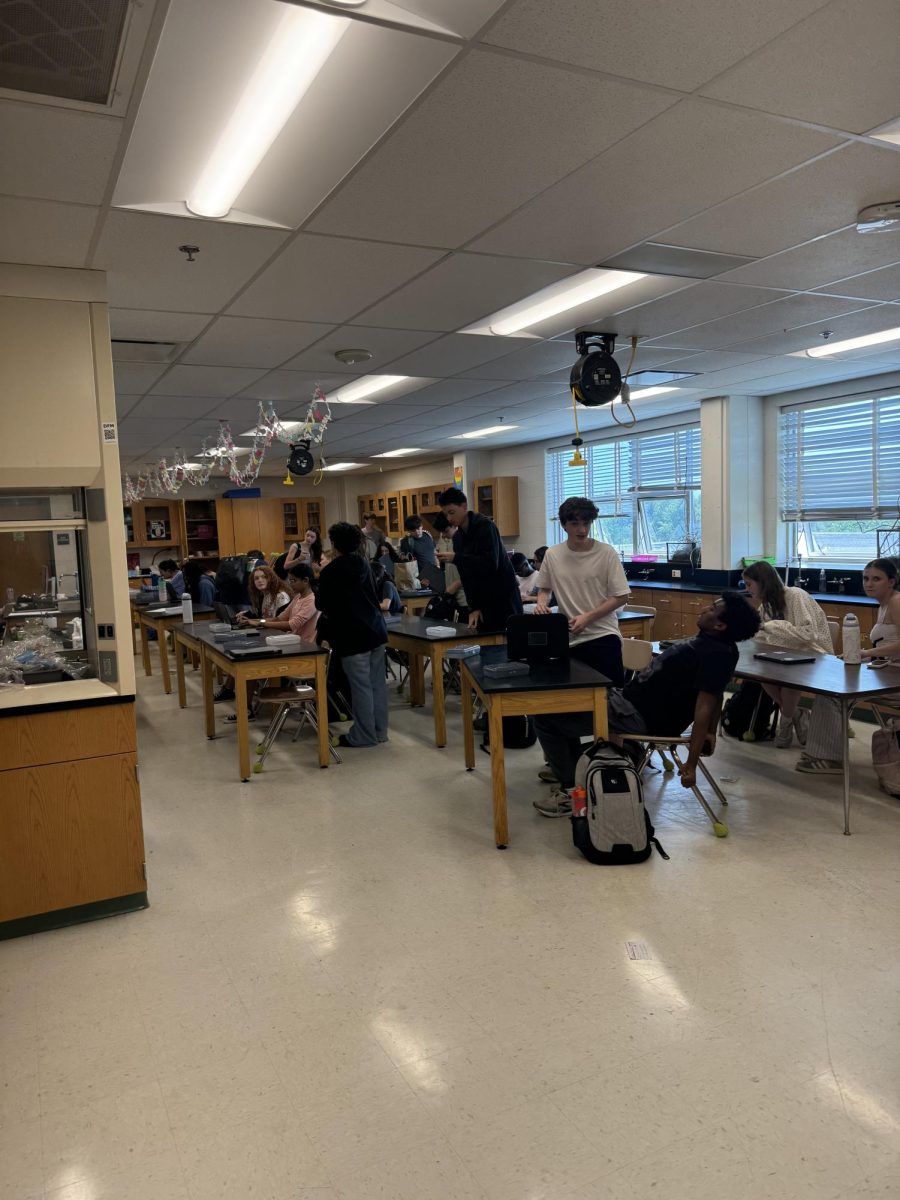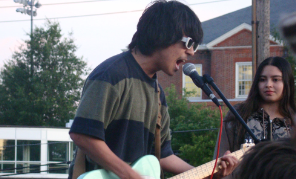The story of Thanksgiving goes as follows; Native Americans from the Wampanoag tribe celebrated a meal of thanksgiving to welcome Europeans. It is said that this was the first time the Natives had met a European, even though they had already interacted prior to this meal.
Contrary to popular belief, the Wampanoags weren’t exactly trying to be friendly when making military alliances with the settlers. According to the Smithsonian magazine, Ousamequin, the Wampanoag leader at the time, wanted a military alliance with the British to offset the tremendous population loss caused by European diseases.
Our knowledge of the holiday has now expanded past the scenes of Thanksgiving pageants, incorporating performances at elementary schools that often portray the encounter between Native Americans and the settlers as the beginning of American history. Today, most people simply commemorate the event by seeing family, eating good food and giving thanks.
Sophomore Grace Harrington and her family are part of the Siletz tribe from Siletz, Oregon. Despite the complicated relationship between Native Americans and Europeans, Thanksgiving is one of her family’s favorite holidays.
“We try to stray away from the idea of ‘colonizers came here and now it’s our country’. My dad loves the holiday because it’s a holiday that, no matter what your faith is, everybody in the U.S celebrates it. We just try to use it as a day to really reflect and be thankful for what we have,” Harrington said.
This widely celebrated American holiday was formerly an English tradition that involved fasting rather than feasting. A set of pilgrim descendants would then begin citing the feast between the Wampanoags and the settlers as the beginnings of America, the holiday we now know and love, Thanksgiving
The holiday was solidified during Abraham Lincoln’s presidency in 1863 to bring the country together amidst growing divisions. Regardless of the holiday’s history, the main takeaway that people focus on today is gratitude and togetherness. Senior Alex Gutierrez is part Cherokee and shares these sentiments.
“I think Thanksgiving is a positive thing because people think about it as being thankful for what they have,” Guitierrez said.
As time goes on, different cultures and traditions are constantly changing throughout countries. Thanksgiving in America is a prime example of this. But why exactly would such a misinformed narrative of it stay so prevalent in American society? This is because of the preservation of a national identity.
“I think in general, we don’t like to be taught that our ancestors were once pretty awful to other people. You can’t form a strong sense of patriotism if you’re teaching that the people in your country essentially annihilated entire groups of people, or forced them onto reservations or took their lands,” AP U.S. History teacher Kathryn Simmons said.
In the ongoing endeavor to honor Native Americans, society continues to acknowledge the massive shortcomings in the narrative surrounding their existence, in addition to adapting our culture to reflect the truth about the history of America.
Categories:
To celebrate or not to celebrate: Thanksgiving’s meaning today
Sophomore Grace Harrington and father dress down in their regalia for powwow. Photos similar to these hang in her house with her father often reminding her of her Native ancestry. “Some people put little pilgrim decorations up on their house at Thanksgiving, we do not do that, but we do still celebrate it because it brings our family together,” Huntington said. (Courtesy Grace Harrington)
Story continues below advertisement
0
Donate to The Pitch
$556
$1000
Contributed
Our Goal
Your donation will support the student journalists of Walter Johnson High School. Your contribution will allow us to purchase equipment and cover our annual website hosting costs.
More to Discover
About the Contributor

Marie-Isabelle Nachega, Print Managing Editor & Illustrator
Senior Marie-Isabelle is thrilled for her second year on The Pitch as a Print Managing Editor. Marie-Isabelle loves reading, hanging out with her family and friends as well as eating almond butter.








